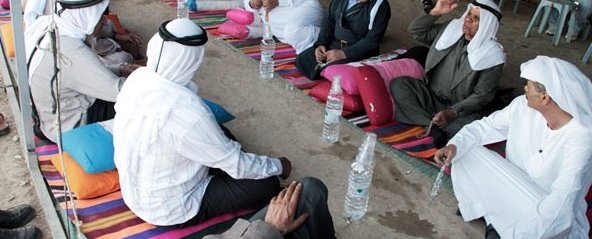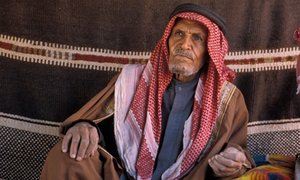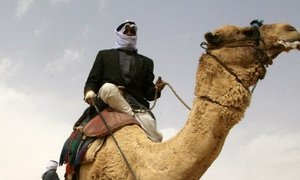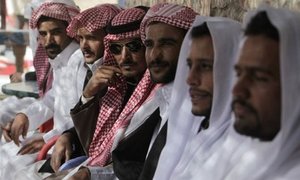""When you have spoken the word, it will rule over you.
When the word is unspoken, you reign over them. "
Arabic proverb
Bedouin have their own legal system: El 'Orf, which various in different regions. Every law has a specific name and decisions on important matters are taken at tribal meetings (Majlis) by consensus of the participants. Only Shayks and other men of authority speak on behalf of parties and represent them.
The Shaykh is the man with authority which is based on his wealth, his inherited respect, personal abilities in helping other tribe members and thus his front-standing position in society.
Bedouin accept those leaders who renounce the use of absolute power, with respect for the leaders of the groups, good relations, satisfaction and direct, open relationships facilitate the process to get cooperation if the leader wants to lead the business in the right direction. Orders, arbitrary decisions, laws and hard bureaucraticmeasures to this effect can not accomplish this. When a clan member commits a murder within the clan, nobody will defend him and if he flees he (or she) is outlawed. A Bedouin without the protection and safety of his tribe is helpless and lost (in the desert).
If murder is committed outside the clan, a feud (vendetta) arises and each clan member may have to pay with his life for this crime. Feuds can take many years. But, instead of a blood feud, it can be and is usually resolved in terms of payment of financial compensation from the so-called blood money (Ursh Dem) or even forgiveness for the greater good. Every case, either an insult or a murder, is discussed by the family and clan members, before it goes to the court (Tlaaba), where a final decision is based on an extensive discussion of the issues, which sometimes seize days or weeks.
Bedouin women are additionally protected by El 'Orf. Any form of misconduct to Bedouin women holds four times heavier punishment than the misconduct in relation to a man under the same circumstances, however women not take part in El 'Orf. Between members of the clan is a verbal scolding usually sufficient to ensure compliance with agreements, but if there is a conflict over land or usufruct, the Sheikh will resolve the dispute, both within the tribe and externally with other tribes. A spokesperson (Kebir) is chosen to represent each party in the dispute and someone will be appointed as warrantor (Kafil).
Source: Lecture Book on the Sinai Tribes by Larry Winter Roeder Jr.




